Looking forward to this Hack Chat! Super interesting work
 Hi all -- Hack CHat coming up in 30 minutes:
Hi all -- Hack CHat coming up in 30 minutes:

https://hackaday.io/event/185521-low-cost-nanopositioning-hack-chat
Low-Cost Nanopositioning Hack Chat
En-Te Hwu will host the Hack Chat on Wednesday, June 15 at noon Pacific. Time zones got you down? Try our handy time zone converter. It may sound like a provocative statement to make, but technology has been on a downward trend for a long time.
 Hi Dan!
Hi Dan!
 Can't want to find out how y'all are getting nanoscale positioning.
Can't want to find out how y'all are getting nanoscale positioning.
 And what you mean by nanoscale positioning.
And what you mean by nanoscale positioning.
 'cause a nano is 10^-9 meters.
'cause a nano is 10^-9 meters.
 That's crazy small
That's crazy small
 Hey Mark -- think positioning stages for things like electron microscopy
Hey Mark -- think positioning stages for things like electron microscopy
 Oh sweet!
Oh sweet!
 Or microinjection into cell nuclei
Or microinjection into cell nuclei
 Patch-clamp rigs?
Patch-clamp rigs?
 Matt Berregren of Autodesk will definitely be interested.
Matt Berregren of Autodesk will definitely be interested.
 I'd say so -- being able to maneuver a micropipette over a single, specific nuclear pore complex or proton pump would be pretty cool
I'd say so -- being able to maneuver a micropipette over a single, specific nuclear pore complex or proton pump would be pretty cool
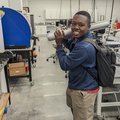 I wonder if he's got anything for rotory positioning
I wonder if he's got anything for rotory positioning
 Good question Jabari....
Good question Jabari....
 I suspect it would depend on your range of motion.
I suspect it would depend on your range of motion.
 true
true
 A stewart-platform might work -- give you the precision, but limited angular range of motion.
A stewart-platform might work -- give you the precision, but limited angular range of motion.
 Yo! I am Edwin, this is very interesting format of discussion :D
Yo! I am Edwin, this is very interesting format of discussion :D
 Imagine a Stewart or a delta bot made with the modified linear slides shown in the event page pix
Imagine a Stewart or a delta bot made with the modified linear slides shown in the event page pix

https://hackaday.io/event/185521-low-cost-nanopositioning-hack-chat
Low-Cost Nanopositioning Hack Chat
En-Te Hwu will host the Hack Chat on Wednesday, June 15 at noon Pacific. Time zones got you down? Try our handy time zone converter. It may sound like a provocative statement to make, but technology has been on a downward trend for a long time.
 I have a rotary (millions steps per resolution) design..
I have a rotary (millions steps per resolution) design..
 Hey there Edwin! Welcome to the Chat -- we'll kick things off in just a minute
Hey there Edwin! Welcome to the Chat -- we'll kick things off in just a minute
 Yeah...I can see ;)
Yeah...I can see ;)
 Nice discussion!
Nice discussion!
 BTW -- Dan -- I have to leave early, not leaving due to content or presenter :)
BTW -- Dan -- I have to leave early, not leaving due to content or presenter :)
 But feel free to chat while we wait
But feel free to chat while we wait
 Hi Edwin!
Hi Edwin!
 Thanks for the heads up -- work is work, amiright?
Thanks for the heads up -- work is work, amiright?
 Hi all!
Hi all!
 Sadly, this is Dentist is dentist.
Sadly, this is Dentist is dentist.
 blargh...blargh I say!
blargh...blargh I say!
 Edwin -- I'm interested in construction, precision, accuracy, backlash compensation, and force.
Edwin -- I'm interested in construction, precision, accuracy, backlash compensation, and force.
 Happy teeth are important oo
Happy teeth are important oo
 *too
*too
 @Mark J Hughes this is a good question.....
@Mark J Hughes this is a good question.....

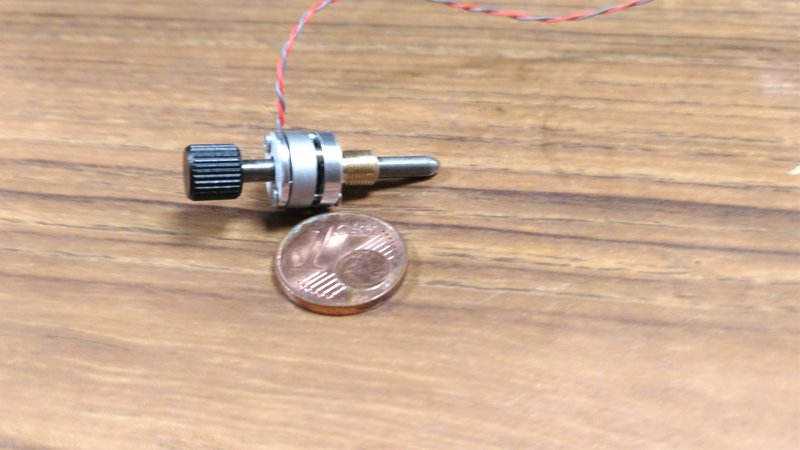

 There are many different nanopositioners for different applications, heavy load, closed-loop, ultra high vacuum...rotational also
There are many different nanopositioners for different applications, heavy load, closed-loop, ultra high vacuum...rotational also
![]() @Edwin Hwu have you published that rotary unit yet?
@Edwin Hwu have you published that rotary unit yet?
 @Prof. Jim Brenner that's great!
@Prof. Jim Brenner that's great!
 I am too busy for Health Tech research...It would be great if guys here can help me for making, characterization and publication
I am too busy for Health Tech research...It would be great if guys here can help me for making, characterization and publication
 Hello all, let's get things going! I'm Dan, and Dusan and I will be modding today as we welcome Edwin Hwu to the Hack Chat. Dr. Hwu (I had to!) is doing some fantastic work on making nanopositioning devices from common DIY parts and processes.
Hello all, let's get things going! I'm Dan, and Dusan and I will be modding today as we welcome Edwin Hwu to the Hack Chat. Dr. Hwu (I had to!) is doing some fantastic work on making nanopositioning devices from common DIY parts and processes.
Welcome to the chat, Edwin! Can you tell us what got you interested in this field?
 Maybe I can collaborate also with @Prof. Jim Brenner also, I have many design collecting dust...
Maybe I can collaborate also with @Prof. Jim Brenner also, I have many design collecting dust...
 @Edwin Hwu connect with Matt Berregren (Autodesk) -- he's making his own patch-clamp rig (or at least he was the last time I saw him pre-covid)
@Edwin Hwu connect with Matt Berregren (Autodesk) -- he's making his own patch-clamp rig (or at least he was the last time I saw him pre-covid)
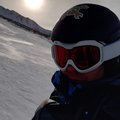 Hello and welcome everyone!
Hello and welcome everyone!
 Dear all, I am originally from Taiwan and I have a Mechanical Engineering background. I worked in a fundamental research institute under Taiwanese President office. now I am doing my research in Denmark on Health technology.
Dear all, I am originally from Taiwan and I have a Mechanical Engineering background. I worked in a fundamental research institute under Taiwanese President office. now I am doing my research in Denmark on Health technology.

https://www.linkedin.com/in/mattberggren/
 I am interested everything that moving haha!
I am interested everything that moving haha!
 But just a little ;)
But just a little ;)

 Moving in very small increments it seems xD
Moving in very small increments it seems xD
 Since I enter the Taiwanese institute, that's when Nanotechnology boom...
Since I enter the Taiwanese institute, that's when Nanotechnology boom...
 cool! Should I look up what nanopositioning is first?
cool! Should I look up what nanopositioning is first?
 nanopositioning.....is to move your sample or tip in nanoscale....
nanopositioning.....is to move your sample or tip in nanoscale....
 under scanning probe microscopy or SEM
under scanning probe microscopy or SEM
 @Prof. Jim Brenner -- we try to keep this just a text chat, but feel free to paste images, links, etc into the chat window
@Prof. Jim Brenner -- we try to keep this just a text chat, but feel free to paste images, links, etc into the chat window
 Oh! that sounds useful.
Oh! that sounds useful.
 Yeah....maybe I can chat with @Prof. Jim Brenner on Zoom another day ;)
Yeah....maybe I can chat with @Prof. Jim Brenner on Zoom another day ;)
 considering this DIY systen it as a plan B for an LBIC myself, if the steppers fail my requirements
considering this DIY systen it as a plan B for an LBIC myself, if the steppers fail my requirements
 LBIC: laser beam induced (photo)current in solar cells
LBIC: laser beam induced (photo)current in solar cells
 BTW, I used Blu-ray optics for nano LBIC too ;)
BTW, I used Blu-ray optics for nano LBIC too ;)
 LBIC?
LBIC?
 Sub-micrometre μ-LBIC Characterisation of Silicon Solar Cells Based on a Blue Laser Pick-up Unit
Sub-micrometre μ-LBIC Characterisation of Silicon Solar Cells Based on a Blue Laser Pick-up Unit
 The for the tip Edwin, I will look into Blu-ray as well, I think nanoposition might be overkill
The for the tip Edwin, I will look into Blu-ray as well, I think nanoposition might be overkill

WELCOME TO DTU RESEARCH DATABASE
Sub-micrometre μ-LBIC Characterisation of Silicon Solar Cells Based on a Blue Laser Pick-up Unit
competitive and versatile optoelectronic characterisation system. A blue laser pick-up unit (LPU) is used here to achieve a highly focused laser beam with a full width half maximum as small as 250 nm on the cell's surface. A photocurrent map is then generated with precise sample movement using a piezo stage and a pico-ammeter.
Read this on Welcome to DTU Research Database
 I did use nanopositioner for this setup haha...
I did use nanopositioner for this setup haha...
 I will read that paper first thing in the morning
I will read that paper first thing in the morning
 Great!
Great!
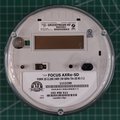 You showed in the paper your open source controller and a commercial controller. How did the results differ in your tests using the open source version?
You showed in the paper your open source controller and a commercial controller. How did the results differ in your tests using the open source version?
 Besides Prof. Brenner, who would like to make closed loop nanopositioner? I would like to try if we can "crowdsource building" this
Besides Prof. Brenner, who would like to make closed loop nanopositioner? I would like to try if we can "crowdsource building" this
 The commercial controller has nice stepping and scanning functions....the open source controller can do only stepping :p
The commercial controller has nice stepping and scanning functions....the open source controller can do only stepping :p
 I'm interested -- but time constrained.
I'm interested -- but time constrained.
![]() <---- count me in
<---- count me in
![]() Could perhaps help with the control / electronics. Did piezo's for a resonant fluid actuator and some other designs
Could perhaps help with the control / electronics. Did piezo's for a resonant fluid actuator and some other designs
 I would also love to see a closed loop version.
I would also love to see a closed loop version.
![]() Who doesn't want a closed-loop nanopositioner??
Who doesn't want a closed-loop nanopositioner??
 @John oh...yeah!
@John oh...yeah!
 You can ask Dan to give you my email -- I can help you with the PCB design & fabrication.
You can ask Dan to give you my email -- I can help you with the PCB design & fabrication.
 I might be able to do more than that if I tie it in with a sponsor company.
I might be able to do more than that if I tie it in with a sponsor company.
 I can feel Germany companies like Smaract and Attocube are sweating....XD
I can feel Germany companies like Smaract and Attocube are sweating....XD
 I'd love to know what find of sensor could be used to close such a physically small loop
I'd love to know what find of sensor could be used to close such a physically small loop
 If I end up building one for the LBIC I would also be interested in closed loop XD
If I end up building one for the LBIC I would also be interested in closed loop XD
 let me find the link for closed loop sensor I sue
let me find the link for closed loop sensor I sue




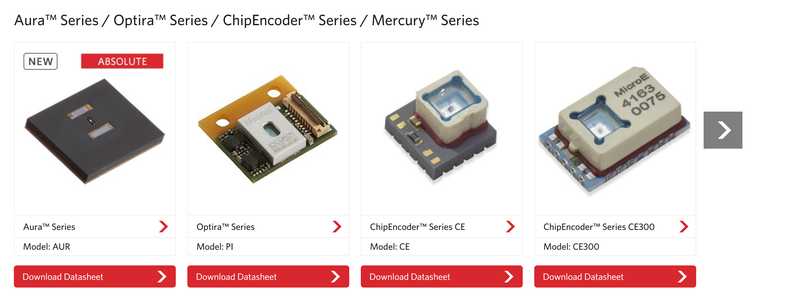

https://www.celeramotion.com/microe/products/linear-encoders/
 @polyfractal Probably not an optical one. But there are magnetic field sensors -- if they have sufficient resolution they might work.
@polyfractal Probably not an optical one. But there are magnetic field sensors -- if they have sufficient resolution they might work.
 @Mark J Hughes - sent him you contact info
@Mark J Hughes - sent him you contact info
 Thanks @Dan Maloney
Thanks @Dan Maloney
 Those little guys sized like your fingernail can get you 1nm accuracy...
Those little guys sized like your fingernail can get you 1nm accuracy...
 How do you deal with the effects of imperfections on the surfaces of the linear slides in your measurements?
How do you deal with the effects of imperfections on the surfaces of the linear slides in your measurements?
 woah
woah
 Magnetic sensor can get somewhat 50nm
Magnetic sensor can get somewhat 50nm
![]() Capacitance?
Capacitance?
 So we're now at the "If it can exist, it probably does, and someone has commercialized it" point, are we?
So we're now at the "If it can exist, it probably does, and someone has commercialized it" point, are we?
 Yes Dan -- yes we are.
Yes Dan -- yes we are.
 And yet we DIY anyway
And yet we DIY anyway
 the imperfection is fine...because no surface is perfect....the mm scale contact area can absorb the imperfection like roughness
the imperfection is fine...because no surface is perfect....the mm scale contact area can absorb the imperfection like roughness
 What about using a beam splitter on a violet laser to create a Michelson interferometer? Wouldn't that give ~10uM resolution?
What about using a beam splitter on a violet laser to create a Michelson interferometer? Wouldn't that give ~10uM resolution?
 What does one of those commercial position sensors run?
What does one of those commercial position sensors run?
 @Edwin Hwu with magnetic sensors and 50nm you refer to Hall sensors, right? Do you expect any interference with the magnets used for the motion?
@Edwin Hwu with magnetic sensors and 50nm you refer to Hall sensors, right? Do you expect any interference with the magnets used for the motion?
 When I was in PTB (German metrology institute) we use interferometer to get 10 pm resolution control ;)
When I was in PTB (German metrology institute) we use interferometer to get 10 pm resolution control ;)
 As I know, the magnets did not interfer the encoder....since the magnet is always there.
As I know, the magnets did not interfer the encoder....since the magnet is always there.
 How much do the encoders cost?
How much do the encoders cost?
 Dan Maloney
Dan Maloney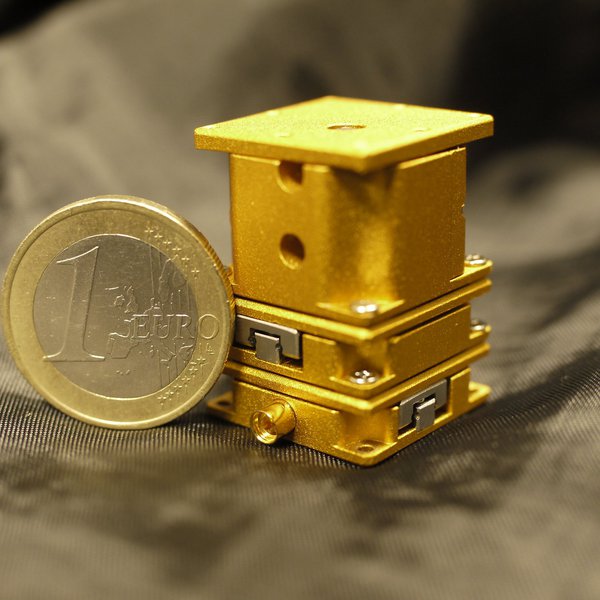
Discussions
Become a Hackaday.io Member
Create an account to leave a comment. Already have an account? Log In.